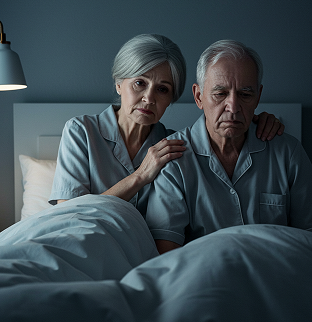
Frequent Nocturnal Urination Causes You Should Not Ignore
Waking several times a night to urinate can drain energy and interrupt deep sleep. For older adults, these nighttime trips also increase the risk of confusion, imbalance, and falls in the dark.
This condition, called nocturia, affects millions and often reflects changes in bladder function, hormones, or fluid balance. Beyond medical causes, the act of leaving bed repeatedly is what most disrupts rest and safety.
If nighttime urination has become frequent, understanding its causes and making a few targeted adjustments can help restore comfort and deeper sleep.
What Frequent Nocturnal Urination Means
Nocturia refers to waking during the night to urinate. While one trip may be harmless, multiple awakenings signal a disruption in how the body manages fluids and sleep.
As we age, bladder capacity decreases, and the kidneys may produce more urine overnight. Hormonal changes and weaker pelvic muscles add to the challenge, sending the bladder urgency signals more often.
Each awakening shortens deep sleep cycles, leading to fatigue, slower reaction times, and reduced alertness. For older adults, it also heightens the risk of imbalance or disorientation when moving between the bed and bathroom.
Recognizing nocturia as both a medical and safety issue is key to managing it effectively.
Common Causes of Nighttime Urination
Nocturia usually results from a mix of age-related changes and underlying health factors:
- Aging and Hormonal Shifts – Reduced bladder capacity and altered nighttime urine production create more frequent urges.
- Prostate or Bladder Issues – An enlarged prostate or weakened pelvic muscles can make it harder to empty the bladder fully.
- Fluid Retention – Swelling in the legs or feet can shift fluids back into circulation when lying down, increasing nighttime urine output.
- Sleep Disorders – Conditions like sleep apnea disrupt hormone levels and bladder signaling.
- Dietary Triggers – Evening caffeine, alcohol, or sugary drinks stimulate urine production and irritate the bladder.
Regardless of cause, the result is the same, less rest and a higher risk of nighttime accidents.
Lifestyle Changes for Better Nights
Small daily adjustments can make nights more comfortable and secure:
- Adjust Fluid Timing – Drink most fluids earlier and limit intake two to three hours before bed.
- Avoid Bladder Irritants – Cut back on caffeine, alcohol, and sugary drinks in the evening.
- Track Patterns – Keep a bathroom log to spot habits or triggers worth changing.
- Encourage Circulation – Gentle evening movement helps release excess fluid before bedtime.
Underlying Health Factors to Watch
Frequent nighttime urination can also signal diabetes, heart or kidney disease, urinary infections, or hormonal imbalances. If awakenings continue despite lifestyle changes, consult a healthcare provider to identify and treat the cause.
Tools for Safer, Restful Nights
Even with healthy habits, some still wake to urinate. The real risk lies in moving around in the dark. A practical aid like the SleepPee portable urinal offers safety and convenience. Its spill-proof, quiet design and glow-in-the-dark lid let users stay in bed, avoid unnecessary movement, and maintain consistent rest. For those with limited mobility or arthritis, keeping SleepPee nearby helps prevent falls and supports restorative sleep.
Sleep Soundly with SleepPee
Frequent nocturnal urination doesn’t have to rob you of rest or safety. By understanding its causes, making small adjustments, and using supportive tools like SleepPee, you can protect your sleep, reduce strain, and wake feeling refreshed.
